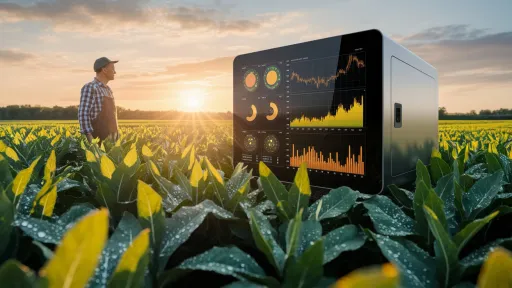
Africa stands at a crossroads. With a youthful population, vast untapped resources, and pressing challenges like food security and healthcare access, the continent is ripe for transformation. Enter Artificial Intelligence (AI) and Machine Learning (ML)—technologies that mimic human thinking and learning, offering solutions to some of Africa’s toughest problems. From predicting crop yields to diagnosing diseases, AI and ML are not just buzzwords here; they’re tools for progress. Here’s a deep dive into how these innovations are opening doors across Africa—and why 2025 could be a turning point.
What AI and ML Mean for Africa
AI and ML enable machines to analyze data, spot patterns, and make decisions, often faster and smarter than humans alone could. In Africa, where traditional systems can’t always keep up with rapid growth, these technologies are a leap forward. With mobile penetration at 48% (GSMA, 2024) and a median age of 19, the continent has the connectivity and energy to embrace this revolution. The potential? A staggering $1.2 trillion boost to Africa’s economy by 2030, according to McKinsey—a 5.6% GDP jump driven by smarter industries and new opportunities.
Opportunities Across Key Sectors
1. Agriculture: Feeding a Continent Smarter
Agriculture employs 60% of Africans, mostly smallholder farmers. AI and ML are transforming this backbone by predicting weather, detecting crop diseases, and optimizing scarce resources like water. South Africa’s Aerobotics uses drones and AI to monitor orchards, catching pests early and boosting yields. In Kenya, apps like PlantVillage Nuru use ML to diagnose cassava diseases via smartphone photos, empowering farmers with real-time advice. With 60% of the world’s uncultivated arable land in Africa (World Bank), AI could unlock a food security revolution.
2. Healthcare: Bridging the Doctor Gap
With just 0.2 doctors per 1,000 people in sub-Saharan Africa (WHO), healthcare is stretched thin. AI steps in by analyzing medical images to spot malaria or tuberculosis faster than overworked staff. In Rwanda, AI-driven drones from Zipline deliver blood and vaccines to remote areas, saving lives. ML also predicts outbreaks—like Ebola or cholera—giving governments a head start.
“AI has the potential to democratize healthcare in Africa, making quality care accessible where it’s needed most,” says Dr. Greg Rockson, co-founder of mPharma, a Ghanaian health tech firm.
3. Education: Learning for All
Africa’s youth need tailored education, and AI delivers. ML personalizes lessons, adapting to each student’s pace, while AI translates content into languages like Swahili or Amharic, breaking barriers. The African Masters of Machine Intelligence (AMMI) in Kigali trains local AI experts, building a talent pipeline. In Nigeria, startups like uLesson use AI to deliver affordable, interactive lessons via mobile devices, reaching millions. Education powered by AI could turn Africa’s demographic dividend into a skilled workforce.
4. Finance: Banking the Unbanked
Over 350 million Africans lack bank accounts, but AI is changing that. ML assesses creditworthiness for people without formal records, unlocking loans. Nigeria’s Kudi uses AI to power digital payments, from transfers to bills, bringing financial services to the masses. Fraud detection, powered by AI, protects these growing systems—crucial in a region where trust is key. By 2030, fintech innovations could add billions to Africa’s GDP, per AUDA-NEPAD.
5. Energy: Powering a Sustainable Future
Energy access lags in Africa, but AI optimizes what’s available. In South Africa, GridPoint uses ML to manage energy in buildings, cutting costs and waste. Across the continent, AI predicts solar output for off-grid systems, vital for rural areas. Smart grids, guided by ML, balance supply and demand, supporting Africa’s push for renewables. With 600 million people off-grid (IEA), AI-driven energy solutions are a lifeline.
The Economic Game-Changer
The numbers are eye-opening: AI could inject $1.2 trillion into Africa’s economy by 2030, McKinsey predicts, driven by productivity gains and new industries. Agriculture and healthcare alone could see $30 billion in benefits over the next decade (Nairametrics, 2024). Jobs will shift too—think AI technicians, data analysts, and app developers—roles that tap Africa’s tech-savvy youth. East Africa, growing at 5.7% economically (NatLawReview, 2025), is leading the charge, with Kenya and Rwanda drafting AI strategies.
African Innovators Leading the Way
Africa isn’t just adopting AI—it’s innovating it. Tunisia’s InstaDeep pioneers reinforcement learning, partnering with Google. Nairobi’s Sama provides data annotation for global ML models, employing thousands. In South Africa, DataProphet uses ML for predictive analytics in finance, proving Africa can compete globally. These trailblazers show the continent’s potential to not just use AI, but shape it.
Challenges to Overcome
The road isn’t smooth. Only 40% of Africans have internet access (ITU, 2024), and power outages hinder tech adoption. A skills gap looms—half of African countries lack computer education in schools (AUDA-NEPAD). Funding’s tight too, with Africa holding just 2.5% of the global AI market (Capacity Media, 2024). But solutions are emerging: partnerships with tech giants, training programs like AMMI, and policies like Uganda’s AI framework are paving the way.
Why 2025 Matters
This year, Africa’s AI story is accelerating. The African Union’s Continental AI Strategy is setting standards, while events like the Africa AgriTech 2025 conference spotlight practical applications. Mobile-first AI tools—think farmer apps or health chatbots—fit Africa’s leapfrogging style, skipping old systems for cutting-edge ones. With global interest rising, 2025 could mark Africa as an AI innovation hub.
Seizing the Opportunity
Africa’s AI and ML future hinges on action now. Governments must boost infrastructure and education. Businesses should invest in local startups. And communities can embrace tools that solve real problems. The payoff? A continent that feeds itself, heals itself, and powers itself—smarter than ever.
Get Involved
How could AI transform your corner of Africa? Explore our resources, share your ideas below, or connect with us—we’re excited to fuel this revolution together!